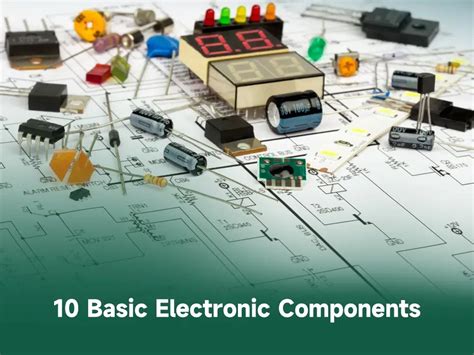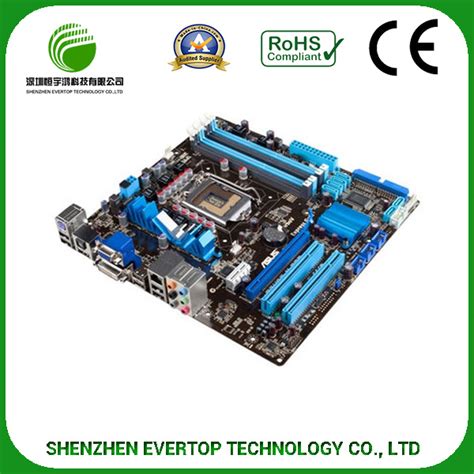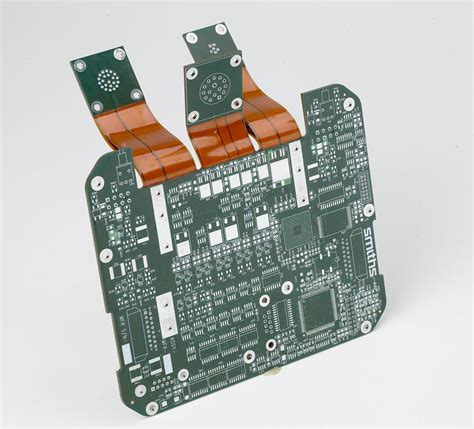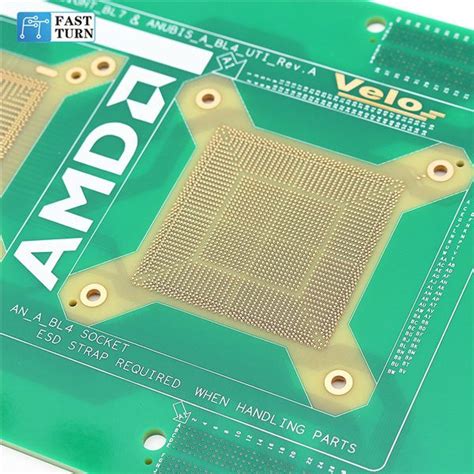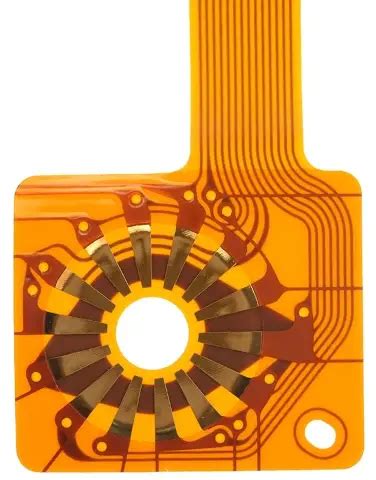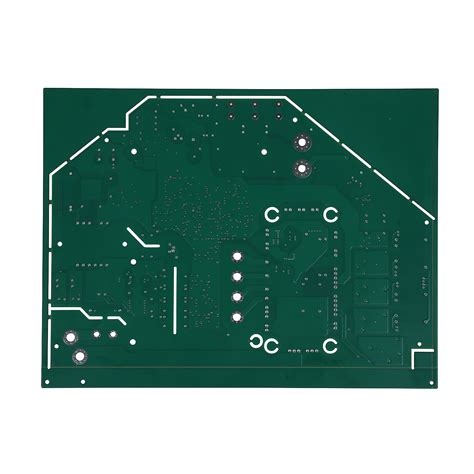Top Circuit Card Assembly Manufacturers Transforming Technology
Key Takeaways
The landscape of pcb assembly, or pcba, is constantly evolving, driven by the unwavering demand for advanced technology and efficiency. In this sector, key manufacturers are not just facilitating the production of circuit cards; they are at the forefront of innovation that transforms how devices and systems operate. These industry leaders integrate state-of-the-art manufacturing processes with advanced materials, enabling a new era of circuit card assembly that delivers high performance and reliability. Moreover, automation plays a pivotal role in optimizing production lines, reducing human error, and accelerating time-to-market for new products. In parallel, sustainability practices have taken a strong hold within leading manufacturers, ensuring their operations align with global environmental standards while also meeting consumer expectations for responsible production. The combined effect of these elements is a robust framework for future trends in pcb assembly, positioning these manufacturers as key players in driving the technological advancements that define our lives today. Recognizing their impact is essential to understanding the dynamics at play in modern electronics manufacturing.
Overview of Circuit Card Assembly in Modern Manufacturing
Circuit card assembly (CCA), encompassing the processes involved in assembling electronic components onto a printed circuit board (PCB), is a critical aspect of modern manufacturing. As technology continues to evolve, efficiency and reliability in pcb assembly have become paramount, driving manufacturers to adopt advanced techniques and methodologies. The pcba process involves several crucial steps, including component placement, soldering, and testing, which must be executed with precision to meet the increasing demands of various industries, from consumer electronics to automotive applications. With the rising complexity of electronic devices, the integration of quality control measures during pcb assembly has gained significance to ensure that products function flawlessly in diverse environments. Furthermore, leading manufacturers are employing cutting-edge technologies such as robotics and artificial intelligence to enhance production speed and accuracy. By embracing these innovations, manufacturers not only boost their operational efficiency but also contribute to the scaling up of circuit card assemblies, ensuring that they can keep pace with rapidly changing market needs while maintaining high-quality standards.
Key Players in the Circuit Card Assembly Industry
The pcb assembly industry thrives on collaboration among various key players who are instrumental in enhancing the overall landscape of technology. These manufacturers focus not only on traditional printed circuit board (PCB) production but also on the more intricate process of pcba (printed circuit board assembly), which integrates additional components and ensures that electronic devices function effectively. Leading companies in this field have harnessed advanced manufacturing techniques to optimize both speed and precision, significantly reducing lead times while maintaining quality standards.
A notable aspect of these manufacturers is their ability to adapt to evolving technologies, allowing them to remain competitive in a rapidly changing market. Many utilize innovative processes such as surface mount technology (SMT) and through-hole assembly, which enhance the functionality and reliability of their pcb assembly products. This is reflected in a comparative analysis of market leaders below:
| Manufacturer | Specialization | Market Share (%) | Innovations Introduced |
|---|---|---|---|
| Company A | High-volume production | 25 | Automated inspection systems |
| Company B | Custom solutions | 20 | AI-driven design enhancements |
| Company C | Rapid prototyping | 15 | Eco-friendly materials utilization |
As technology continues to unfold, the indispensable contribution of these manufacturers not only supports existing industrial demands but also paves the way for future advancements, ensuring that they play a critical role in shaping the next generation of electronic devices through efficient pcba and continuous innovation. Their commitment to high-quality standards and customer satisfaction remains a cornerstone for their success, positioning them as essential partners in modern electronics manufacturing.
Innovations Revolutionizing Circuit Card Assembly Processes
The field of circuit card assembly (CCA) has witnessed transformative innovations that are pushing the boundaries of what is possible in electronic manufacturing. At the forefront of this evolution is the integration of advanced technologies, such as automated optical inspection (AOI), which allows for meticulous quality control in pcb assembly processes. By utilizing AI-driven algorithms, manufacturers can achieve higher accuracy rates, reducing waste and enhancing overall production efficiency.
The emergence of flexible manufacturing systems also plays a vital role in revolutionizing pcba practices. These systems enable manufacturers to adapt swiftly to changing market demands and efficiently manage varying batch sizes without compromising on quality. Additionally, technologies like digital twin simulations allow companies to model their production processes in a virtual environment, fostering continuous improvement and innovative solutions tailored to meet specific customer needs.
“Innovation is not just a goal; it is the standard we set for our products and processes,” one industry expert noted, emphasizing the importance of a forward-thinking approach in this competitive landscape.
Moreover, manufacturers are increasingly adopting green technologies, focusing on sustainability by reducing energy consumption and minimizing carbon footprints during production. This shift not only reflects corporate responsibility but also appeals to environmentally conscious consumers and partners alike. The intersection of innovation and sustainability defines the modern era of circuit card assembly, forging a path towards more efficient, reliable, and eco-friendly manufacturing practices that significantly impact technology as we know it today.
The Role of Automation in Enhancing Efficiency
The emergence of automation in the circuit card assembly (CCA) industry has significantly transformed how pcb assembly processes are conducted. With technologies such as robotic arms, automated inspection systems, and software-driven logistics, manufacturers are achieving unparalleled levels of precision and speed. This shift not only reduces the likelihood of human error but also enhances productivity by streamlining operations. For instance, the integration of automated pick-and-place machines allows for rapid and accurate placement of components on printed circuit boards (PCBs), making pcba production more efficient. Furthermore, real-time data analytics provide manufacturers with insights into production workflows, enabling them to continually optimize their processes and reduce waste. By harnessing these advanced manufacturing techniques, leading circuit card assembly manufacturers are setting new standards for efficiency while meeting the increasing demands for high-quality electronic products across various sectors. Overall, as automation becomes more prevalent in the industry, it is not only improving production rates but is also paving the way for enhanced innovation and sustainability practices in circuit card assembly.
Sustainability Practices Among Top Circuit Card Assembly Manufacturers
As the demand for pcb assembly continues to grow, leading manufacturers in the circuit card assembly industry are increasingly prioritizing sustainability in their operations. These companies are not only focusing on efficiency and innovation but also on minimizing their environmental impact through various sustainable practices. Many top pcba manufacturers have adopted advanced materials that are recyclable and environmentally friendly, moving away from harmful substances that can compromise ecological health. Furthermore, these manufacturers often implement energy-efficient technologies in their production processes, reducing carbon footprints while improving productivity.
In addition to material selection and energy efficiency, circuit card assembly leaders are embracing recycling and waste reduction initiatives. By establishing stringent waste management systems and partnering with local recycling programs, they ensure that scrap materials from the pcb assembly process do not contribute to landfills. Some trailblazers have even begun utilizing life-cycle assessments to evaluate the environmental impact of their products throughout their entire lifespan.
As customer interest in eco-friendly products grows, integrating sustainability into company values is becoming a competitive advantage for these manufacturers. Their commitment not only attracts environmentally conscious clients but also sets a precedent within the industry for adopting greener principles in technology manufacturing. The future of circuit card assembly is undeniably shifting towards a more sustainable model, showcasing how innovation can harmonize with responsible manufacturing practices to create an efficient and eco-friendly production landscape.
Future Trends in Circuit Card Assembly Technology
As the demand for sophisticated electronic devices continues to rise, the pcb assembly landscape is undergoing remarkable transformations driven by innovations and emerging technologies. One prominent trend is the integration of AI and machine learning into circuit card assembly processes, enhancing accuracy and reducing error rates in pcba production. Advanced robotics are also playing a crucial role, allowing for faster assembly while minimizing human intervention in repetitive tasks. Additionally, manufacturers are increasingly adopting flexible PCB technologies, which enable the production of thinner and lighter circuit designs, catering to the growing need for compact electronic solutions. The focus on sustainability is also evident as companies implement environmentally friendly practices, such as minimizing waste and utilizing recyclable materials in pcb assembly processes. As circuit card assembly manufacturers strive to stay competitive, these trends will undoubtedly shape the industry’s future, promoting efficiency and innovation across various sectors.
Case Studies: Success Stories from Leading Manufacturers
In the rapidly evolving world of electronics, pcb assembly plays a crucial role in the functionality and efficiency of devices. Leading circuit card assembly manufacturers have consistently set benchmarks for innovation through their adept use of advanced technologies and manufacturing practices. For instance, Company A, renowned for its emphasis on precision, has integrated automation into its pcba processes, significantly reducing production times while enhancing quality control. Another noteworthy example is Company B, which has pioneered the use of sustainable materials in its assembly lines, aligning with global sustainability trends while maintaining competitive pricing on its products. By leveraging advanced software to streamline workflows and employing robotics for repetitive tasks, these manufacturers are transforming the landscape of circuit card assemblies. Ultimately, their success stories underscore the importance of continuous improvement and responsiveness to market demands in the realm of pcb assembly, paving the way for future advancements in technology.
Conclusion
As we reflect on the advancements within the circuit card assembly industry, it becomes evident that the landscape is constantly evolving. Leading circuit card assembly manufacturers are at the forefront of this transformation, showcasing their prowess through enhanced pcb assembly techniques and innovative practices. These manufacturers harness cutting-edge technology to streamline operations, improve product quality, and increase overall efficiency. The integration of automation within pcba processes not only boosts production capabilities but also minimizes human errors, driving greater precision in assembly lines. Additionally, sustainability efforts are taking center stage as these companies strive to reduce their environmental footprint while maintaining high manufacturing standards. Looking ahead, future trends will likely emphasize even more sophisticated pcba methodologies alongside a commitment to eco-friendly practices. Thus, it is clear that the contributions of these industry leaders are not just shaping the present but also laying a foundation for a technologically advanced future in circuit card assembly.
FAQs
What is PCB assembly?
PCB assembly refers to the process of assembling electronic components onto a printed circuit board (PCB) to create a functioning electronic device. It involves various stages, including placing components, soldering them into position, and performing quality checks.
What are the common types of PCB assembly?
There are several types: Surface Mount Technology (SMT), where components are mounted directly onto the surface of the PCB; and Through-Hole Technology, where components are inserted into holes drilled in the board. Both methods can be used in association with pcba to ensure rich functionality.
How do circuit card assembly manufacturers ensure quality?
Top manufacturers employ rigorous testing methods such as Automated Optical Inspection (AOI), X-ray inspection for hidden solder joints, and Functional Testing. These processes help guarantee that the pcb assembly is reliable and functions as intended.
What role does automation play in PCB assembly?
Automation enhances efficiency throughout the entire pcba lifecycle. With robotic systems handling component placement and soldering, manufacturers can achieve higher precision and reduce lead times significantly when compared to manual processes.
Are there sustainable practices within the PCB assembly industry?
Yes, many leading manufacturers focus on sustainability by using eco-friendly materials, minimizing waste during production, and promoting recycling programs for end-of-life products.
What future trends are emerging in circuit card assembly technology?
Emerging trends include advancements in flexible PCBs, increased use of automation and AI-driven processes, along with a greater emphasis on miniaturization to accommodate increasingly compact electronic devices.
Interested in learning more about PCB Assembly?
For more information on how leading companies implement pcb assembly solutions effectively, please click here.

